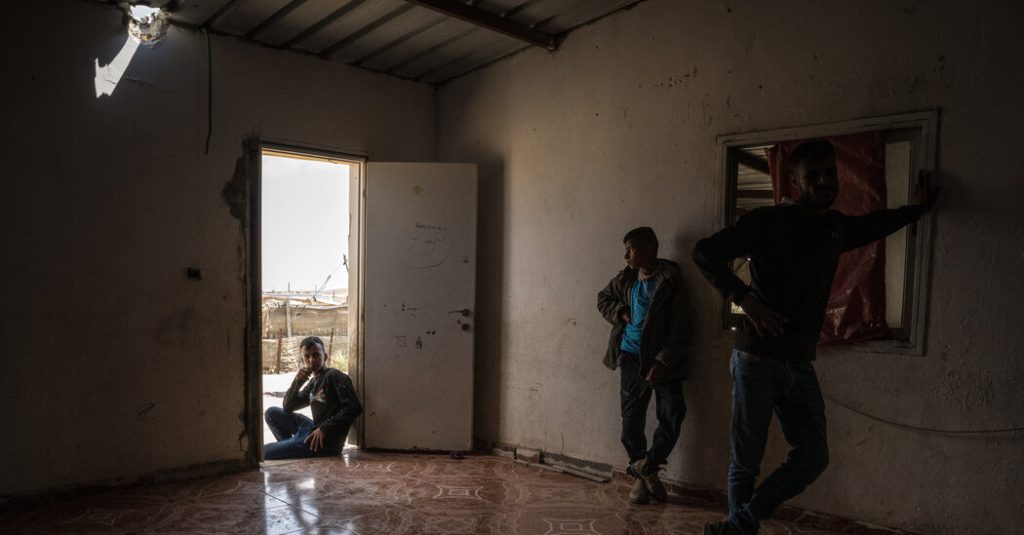The hospital waiting room at the Soroka Medical Center in Beersheba, Israel, was quiet after Israel’s air defenses successfully fended off an Iranian attack. However, tension filled the air in the pediatric intensive care unit where 7-year-old Amina al-Hasoni was clinging to life as the sole serious casualty of the attack. Amina’s family, who are Arab Bedouins living in the unrecognized village of al-Fur’ah in the Negev desert, felt the devastating effects of the attack due to systemic inequities in Israel. Their community lacks basic services like bomb shelters and running water, leaving Amina vulnerable to the attack.
On the night of the attack, Amina’s uncle Ismail found her injured after a missile fragment struck their home, knocking her unconscious. Amina was rushed to the hospital more than 40 minutes away, with Ismail carrying her in his arms. A large piece of shrapnel and a pool of blood in the family home served as a painful reminder of the tragic events that unfolded that night. Ismail expressed frustration that the lack of proper infrastructure in their community contributed to Amina’s injuries, suggesting that the incident was not just bad luck but a result of neglect and policy decisions beyond their control.
More than 150 missile fragments were collected in the surrounding area by bomb disposal teams, indicating the scale of the Iranian attack. Despite the proximity of the Hasoni home to a military base that was reportedly targeted, the family received little comfort. Amina’s father, Muhammad, spent the morning at the hospital by her side, unable to do more than repeat her name. Muhammad described Amina as a vibrant and lively young girl who enjoys drawing, painting a picture of a child full of life who now hangs in the balance due to the inhumane actions of Iran.
The devastating impact of the Iranian attack on Amina and her family highlights the broader issue of systemic inequalities faced by Bedouin communities in Israel. The lack of recognition of these villages by Israeli officials translates into a lack of basic services and protection for residents. Amina’s tragic story underscores the importance of addressing these disparities and ensuring the safety and well-being of all Israeli citizens, regardless of their background. The emotional turmoil experienced by Amina’s family serves as a stark reminder of the human cost of political conflicts and the urgent need for greater equity and justice in the region.


